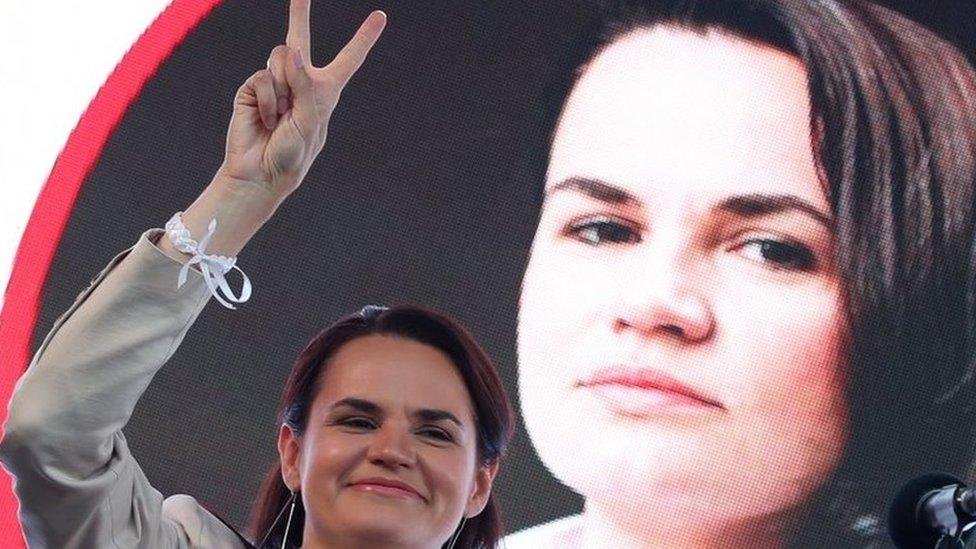Belarus protests: 'There's no way back. The people will not forgive this'
- Published
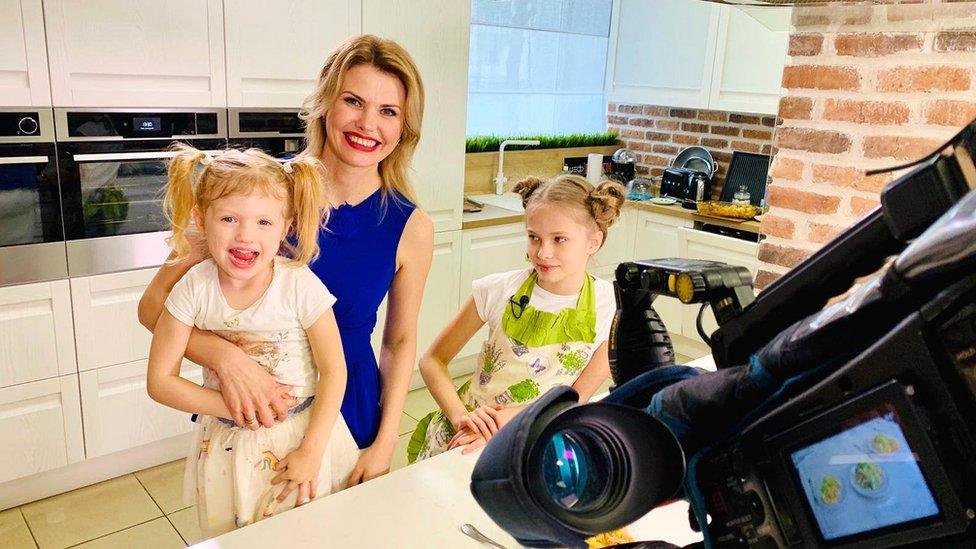
TV presenter Tatyana Borodkina, seen here with her two daughters, has now fled Belarus
Belarusian state TV presenter Tatyana Borodkina is into cooking, not politics.
Each morning, on Breakfast for 3, she would prepare simple recipes helped out by her two young daughters.
But last week, she announced her resignation on Facebook, declaring that she could "no longer smile out from the TV screen" after what she was sure was a crudely rigged election.
She has since had to flee the country with her children, after receiving threats.
Tatyana is one of a growing number of state media employees to publicly announce their support for change, suggesting cracks in the information system - the propaganda machine - that for 26 years has helped keep President Alexander Lukashenko in power.
On Monday, staff at the state media service Belteleradio began walking off the job, declaring the 9 August election "illegitimate" and calling for an end to media censorship. Main channels, including Belarus 1, are now broadcasting repeats.
Allow X content?
This article contains content provided by X. We ask for your permission before anything is loaded, as they may be using cookies and other technologies. You may want to read X’s cookie policy, external and privacy policy, external before accepting. To view this content choose ‘accept and continue’.
"I can't tell the viewers joyfully that 'tasty living is easy!' anymore," Tatyana told me this week, quoting her own TV catchphrase.
The popular STV presenter says when she wrote something similar on social media, an old acquaintance turned up at her home and threatened her.
"He started telling me what a wonderful country we live in and asking what I thought I was doing. He said he was warning me nicely, but that other people would come tomorrow," she explained from Ukraine, where she is now staying for safety.
She also received anonymous, threatening messages on her phone.
"They said they'd take my children if I went on talking," she says.
Other media figures, including some well-known journalists, have since announced their resignation, though few have dared discuss their motives openly. Most have limited themselves to announcing their "last working day" on social media, attracting thousands of "likes".
For Tatyana, the brutality of security forces against protesters was the breaking point.
"They're trying to terrify people, but the reverse is happening. No one will forget what went on," she says of the mass arrests and violent treatment of peaceful protesters.
She is emotional, admitting that she is struggling to sleep, horrified by messages from friends who have been detained and beaten.
"There's no way back. The people will not forgive this," she insists.
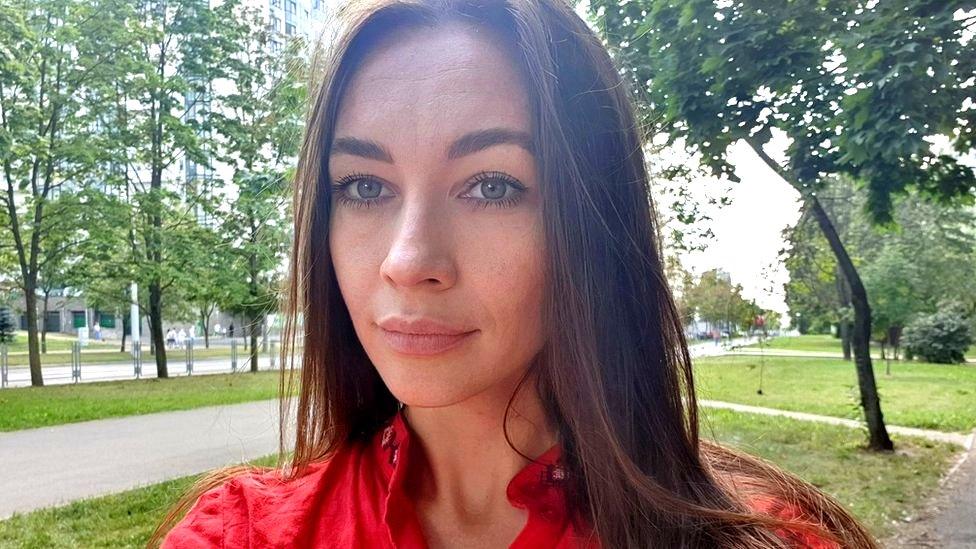
Yana Shyoko decided to speak out after her husband was detained for filming a protest on his phone
TV correspondent Yana Shyoko suffered sleepless nights too, when her husband Ivan Murayyov went missing. A freelance reporter, he was detained for filming at a protest on his mobile phone.
"It was a total violation of human rights," the STV journalist says of what followed: her husband's three days of beatings at the hands of police - and her own, anxious wait outside the detention centre with hundreds of other relatives, as ambulances went in and out.
"They put us face to the wall, lifted our shirts and beat our backs with batons," Ivan said, describing what he endured.
"Then they threw me on the floor and beat me and I heard this phrase: 'Who do you love?'" he says. "I didn't understand, until the OMON [riot police] said 'I love Belarus!'"
Horrified, Yana decided to speak out.
"They wanted to teach people a lesson, not to protest. But they got another result," the correspondent tells me from Minsk.
"Never in the history of Belarus have we seen such united actions as now. I feel like it's already impossible to stop. We have such a feeling, like the Belarusian nation has been born," Yana says.
Large crowds of anti-government demonstrators rallied in the capital
State TV channels like her own have not been covering the mass protests or the full extent of the police violence. On Friday, dozens of people rallied outside several offices demanding that journalists "tell the truth".
"Of course, I agree with the people who are protesting, especially when I personally suffered this arrest with my husband," Yana says. "There was not enough information. They could do more."
This weekend, when tens of thousands gathered in Minsk to call for free and fair elections, STV's main news bulletin called the biggest protest ever in Belarus an "alternative walk" and mentioned it only in passing.
The accompanying images were filmed early, before the streets filled up.
By contrast, 22 minutes were devoted to a pro-Lukashenko rally containing extensive extracts from his speech and lots of close-ups of the crowd to make it seem bigger.
Even so, Yana - who was accredited to the presidential pool for several years, following Alexander Lukashenko - resists the term "propaganda" and argues she has always asked "inconvenient" questions of her interviewees.
On leave now, she hopes to return to her job - although she says friends and strangers alike have been messaging, urging her to resign.
"I am just dreaming that in future we will have normal journalism, real quality," Yana says. "Because it is painful when people hate everyone who works in state TV."
As for her country, Yana describes recent events as "very inspiring".
"A few months ago, almost everyone was sure Lukashenko would win this election… because there was no competition. But there were some fatal mistakes and now it's very difficult to stop."
'Human life is the most precious thing': Svetlana Tikhanovskaya speaks out from exile
In Kyiv, Ukraine, and off-screen, her colleague Tatyana Borodkina feels like her entire life has been upended.
She voted for opposition candidate Svetlana Tikhanovskaya because she could see no future for her children under Mr Lukashenko and calls the 80% victory he claims "impossible".
She still believes an honest, fresh election can be held. But until then, she cannot return to Minsk.
"What's happening is very painful," Tatyana says. "I really want to go home, to my beloved Belarus," she breaks into tears. "I never thought this could happen to me. No-one thought they would treat us like this!"

More about the protests in Belarus
LETTER FROM MINSK: Shocked by violence, people lose their fear
SPREADING THE NEWS: How messenger app bypassed blackout
PROFILE: The stay-at-home mum challenging Belarus's longtime ruler

- Published17 August 2020
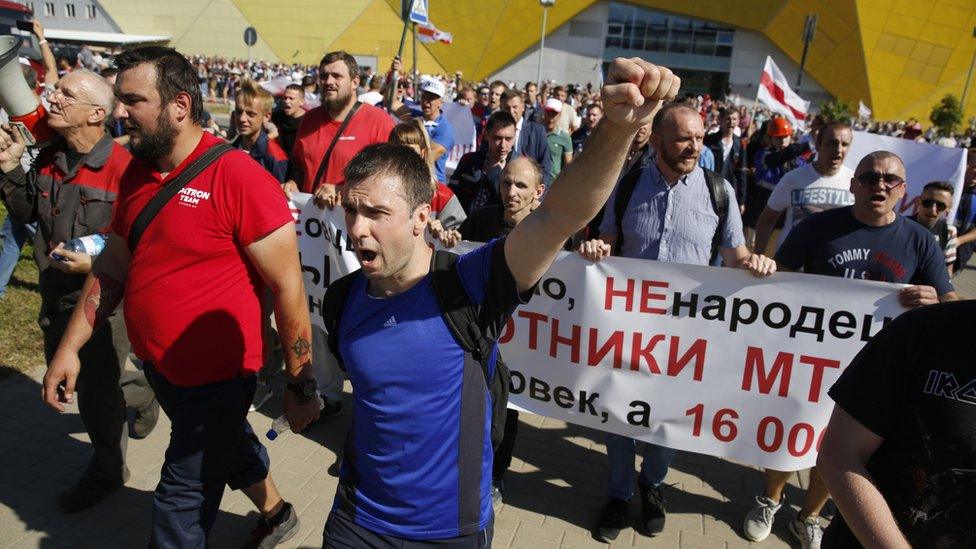
- Published8 September 2020
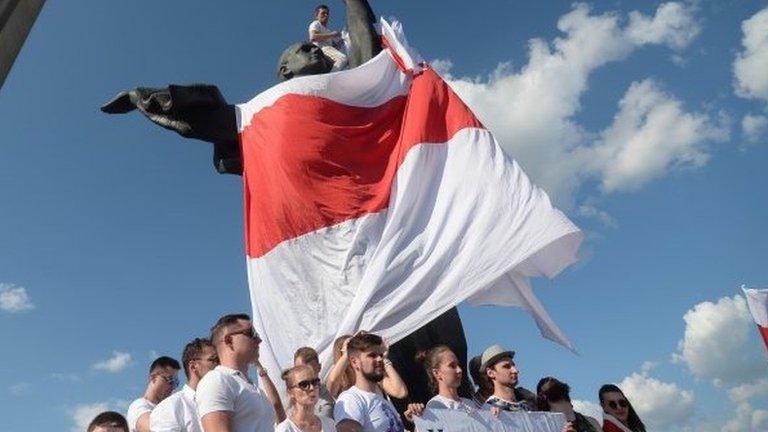
- Published16 August 2020
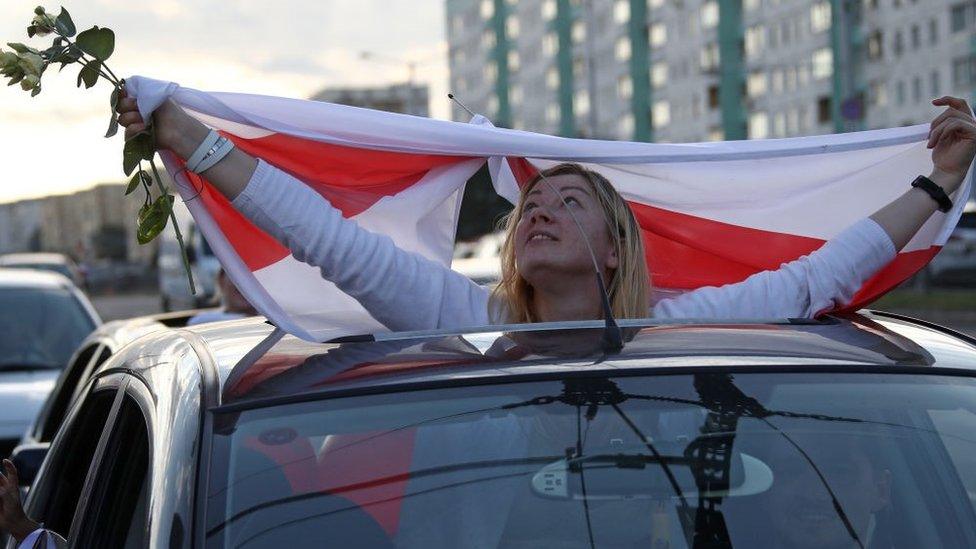
- Published15 August 2020
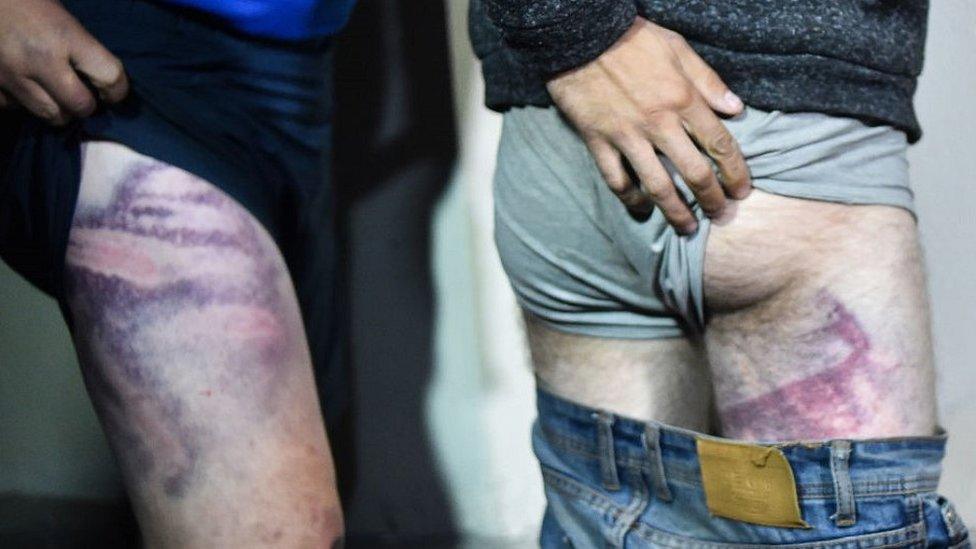
- Published14 August 2020
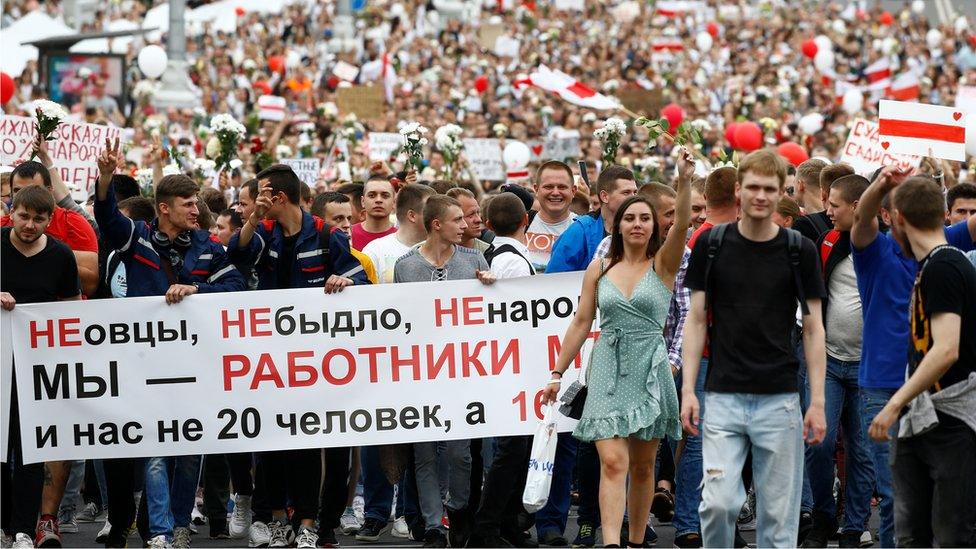
- Published14 August 2020
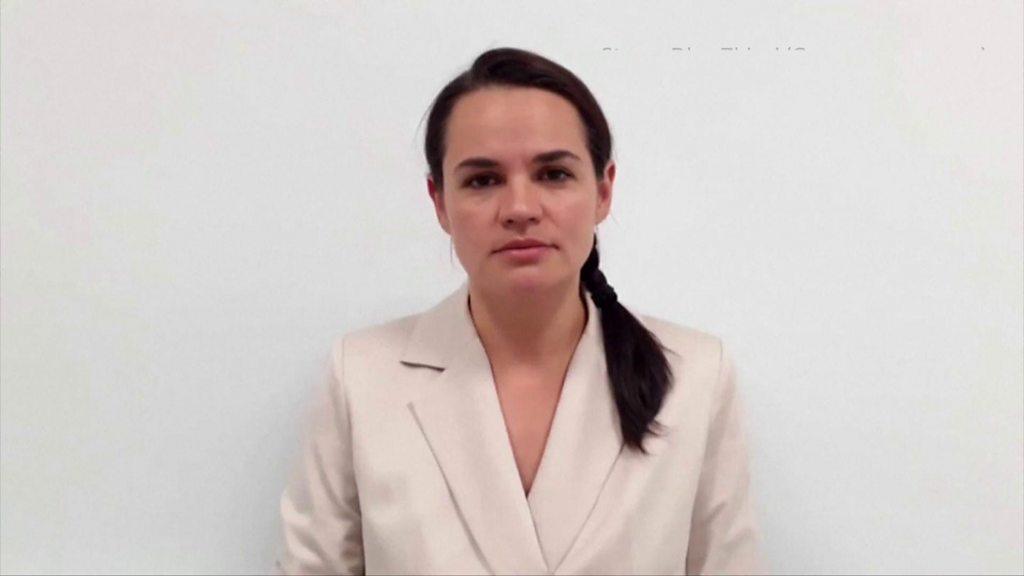
- Published11 August 2020
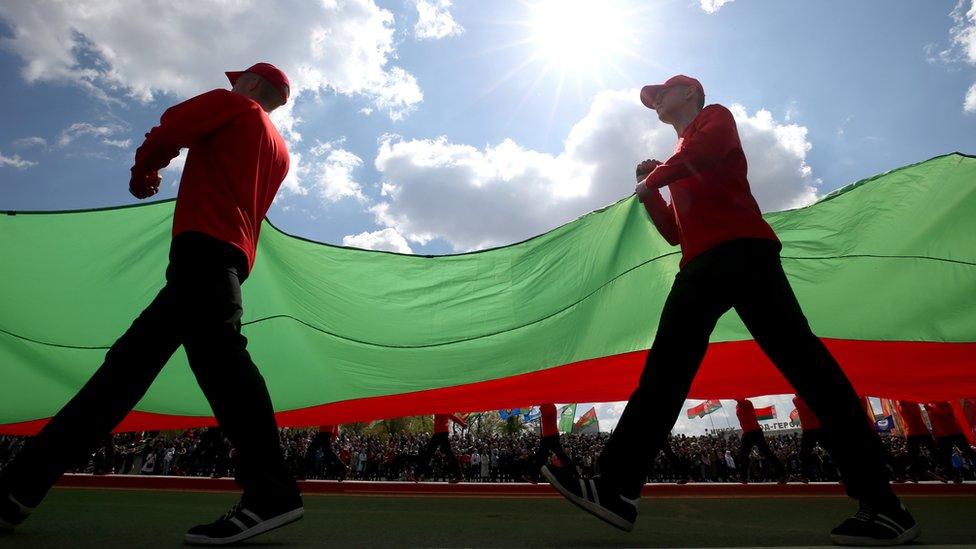
- Published13 August 2020
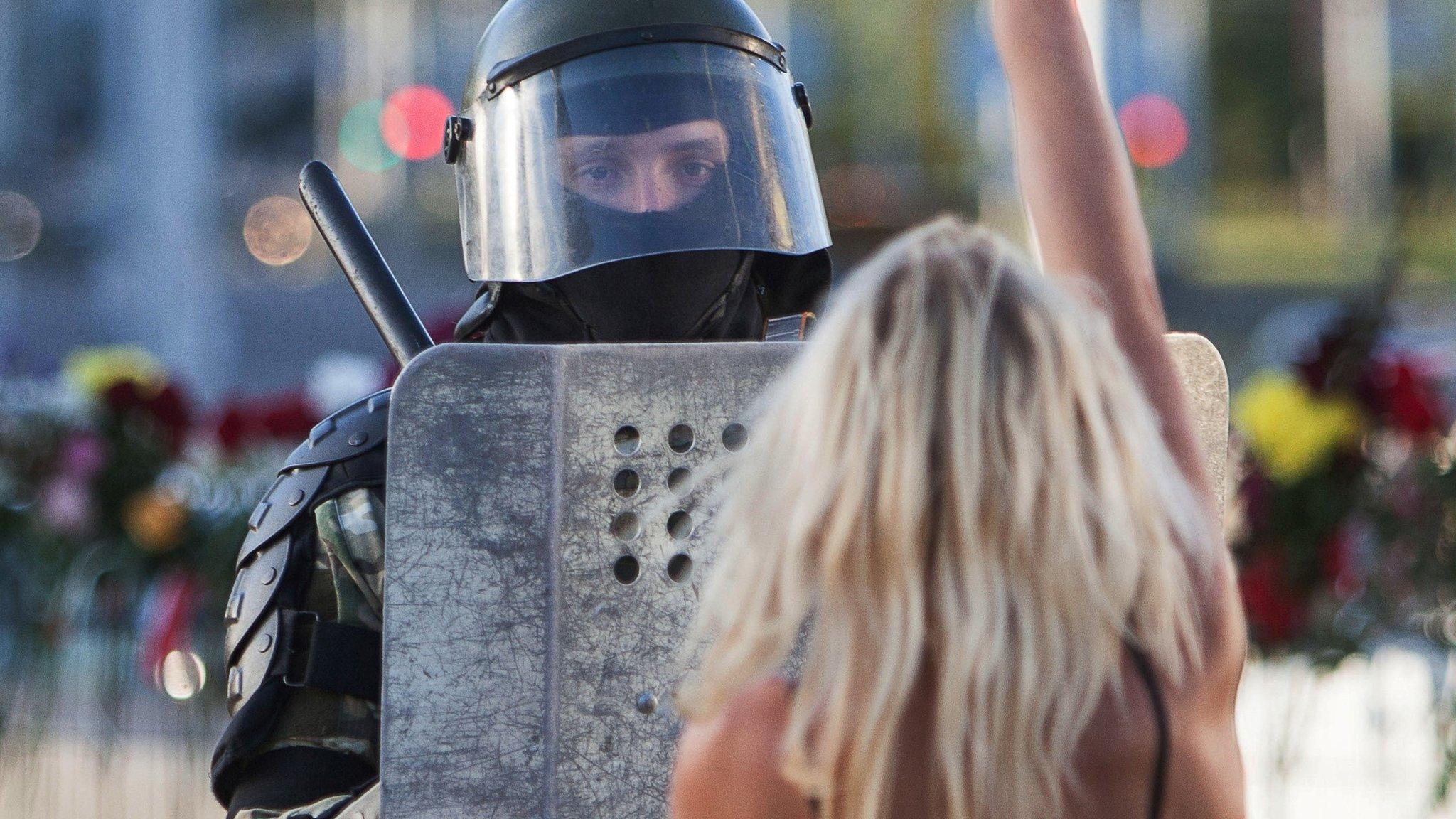
- Published1 August 2020
